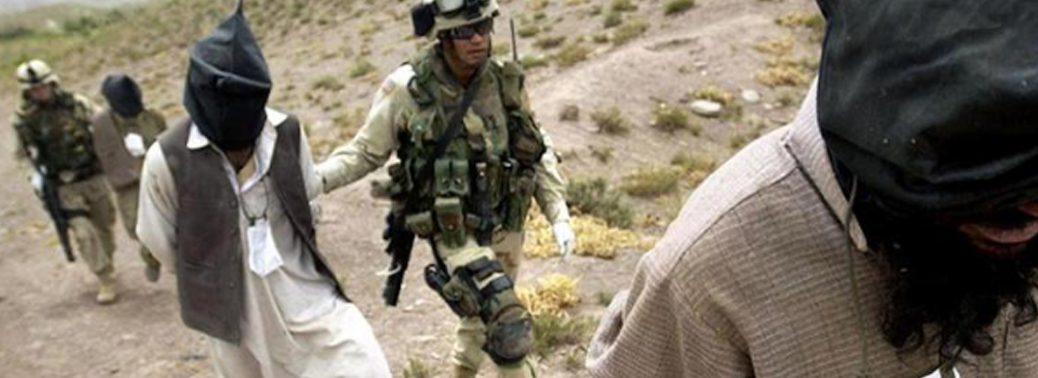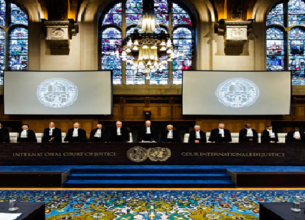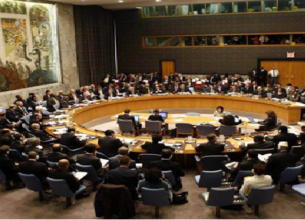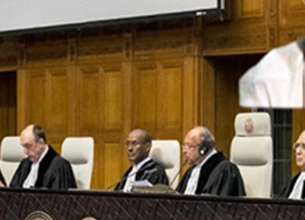ICC PROBE ON AFGHANISTAN ALLEGED WAR CRIMES
07, Mar 2020

Prelims level : International Policies & Schemes
Mains level : GS-II Important International institutions, agencies and fora- their structure, Mandate.
Why in News?
- International Criminal Court (ICC) Prosecutors have been given the green light to investigate alleged war crimes and crimes against humanity in Afghanistan – and beyond its borders – linked to Afghan, Taliban and US troops.
What is the Issue?
- The prosecutors alleged in a 2017 report said they have enough information to prove U.S. forces “committed acts of torture, cruel treatment, outrages upon personal dignity, rape and sexual violence against conflict-related detainees in Afghanistan and other locations, principally in the 2003-2004 period.”
About Doha accord between US and Taliban:
- The United States has signed a historic deal with Taliban insurgents that could pave the way for ending the 18-year-war in Afghanistan.
- The deal was signed in Doha (Qatar) and thus termed as Doha Agreement.
- India has welcomed the signing of the U.S.-Taliban peace deal by accepting an invitation to attend the meeting for the same in Doha.
- The agreement set out a course of comprehensive ceasefire between the Afghan Government and Taliban for the next 14 months.
- Timeline for the withdrawal of all foreign forces from Afghanistan will be carried out, provided the Taliban adhere to their security guarantees and ceasefire.
- The prevention of the use of Afghanistan by any group or individual against the security of the United States and its allies.
- The facilitation of an intra-Afghan dialogue.
- The participants of intra-Afghan negotiations will discuss the date and modalities of a permanent and comprehensive ceasefire, including agreement over the future political roadmap of Afghanistan.
- In turn, the Taliban has demanded the release of 5000 fighters from Afghan-run jails.
About ICC:
- The International Criminal Court (ICC), located in The Hague, is the court of last resort for prosecution of genocide, war crimes, and crimes against humanity.
- It is the first permanent, treaty based, international criminal court established to help end impunity for the perpetrators of the most serious crimes of concern to the international community.
- Its founding treaty, the Rome Statute, entered into force on July 1, 2002.
- Although the Court’s expenses are funded primarily by States Parties, it also receives voluntary contributions from governments, international organisations, individuals, corporations and other entities.
- The Court’s management oversight and legislative body, the Assembly of States Parties, consists of one representative from each state party.
- Each state party has one vote and “every effort” has to be made to reach decisions by consensus. If consensus cannot be reached, decisions are made by vote. The Assembly is presided over by a president and two vice-presidents, who are elected by the members to three-year terms.
What are its Jurisdiction?
- The ICC has the jurisdiction to prosecute individuals for the international crimes of genocide, crimes against humanity, and war crimes.
- The ICC is intended to complement existing national judicial systems and it may therefore only exercise its jurisdiction when certain conditions are met, such as when national courts are unwilling or unable to prosecute criminals or when the United Nations Security Councillor individual states refer situations to the Court.
What are the Criticisms of ICC?
- It does not have the capacity to arrest suspects and depends on member states for their cooperation.
- Critics of the Court argue that there are insufficient checks and balances on the authority of the ICC prosecutor and judges and insufficient protection against politicized prosecutions or other abuses.
- The ICC has been accused of bias and as being a tool of Western imperialism, only punishing leaders from small, weak states while ignoring crimes committed by richer and more powerful states.
- ICC cannot mount successful cases without state cooperation is problematic for several reasons. It means that the ICC acts inconsistently in its selection of cases, is prevented from taking on hard cases and loses legitimacy.
- It also gives the ICC less deterrent value, as potential perpetrators of war crimes know that they can avoid ICC judgment by taking over government and refusing to cooperate.










